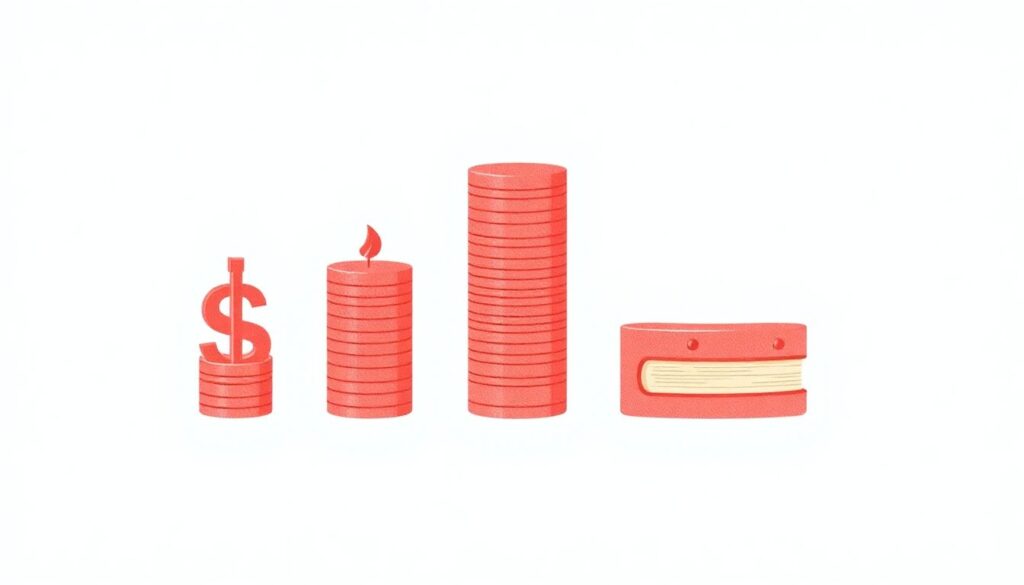Understanding the Real Problem: Why Budgeting Feels Overwhelming
For many, the phrase “budgeting for beginners” evokes stress and confusion. The problem isn’t lack of tools — it’s information overload, unrealistic expectations, and fear of failure. Many first-time budgeters approach it like a strict diet: full of restrictions, guilt, and hard-to-maintain rules. This often leads to burnout and abandonment. Real budgeting isn’t about punishment; it’s about awareness, choice, and peace of mind. When approached properly, a no-stress budgeting guide can actually reduce anxiety, not increase it.
Common Mistakes First-Time Budgeters Make

One of the most frequent missteps is copying someone else’s method without customizing it. A beginner budget planner must suit your lifestyle and habits — not your friend’s or a financial influencer’s. Another mistake is being too optimistic. If you claim you’ll “never eat out again” or “cut groceries by 50%,” your budget is doomed to fail. People also often ignore irregular expenses like annual subscriptions or car maintenance. These hidden costs derail even well-planned budgets if they’re not accounted for.
Case Study: From Chaos to Clarity

Take Mia, a 27-year-old graphic designer who lived paycheck to paycheck despite earning a decent income. Her first attempt at budgeting used a complex spreadsheet she found online. She included 50+ categories and manually tracked every purchase, which quickly became unsustainable. After abandoning the system twice, she switched to a simplified method: three spending buckets (Essentials, Wants, Savings) and a weekly check-in. Within three months, she was saving 15% of her income and, more importantly, felt confident about money for the first time in years.
Not-So-Obvious Solutions That Actually Work
When thinking about how to create a budget, most people focus on monthly tracking. But switching to a weekly budget frame can reduce stress significantly. Why? Human attention spans and motivation cycles work better in shorter intervals. Another surprising tactic is budgeting backwards. Instead of tracking expenses first, start by defining your savings goal and subtracting it from your income. Only then do you allocate the remainder. This “pay yourself first” strategy builds stronger financial habits without micromanaging every cent.
Alternative Budgeting Methods Worth Trying
Not everyone thrives with spreadsheets or budget apps. Some people find success using the envelope system — even digitally. Apps like Goodbudget simulate this old-school cash method online. Others prefer the zero-based budgeting method, where every dollar is given a job. But if that feels too rigid, try the 80/20 budget: automatically save 20% and freely spend the rest — no guilt, no tracking. This is ideal for people who dislike numbers but still want structure. Easy budgeting tips like these can be game-changers, especially for those new to managing money.
Essential Steps to Create a No-Stress Budget
Here’s a beginner-friendly framework that avoids overwhelm:
1. List Your Real Income — Include all sources after taxes. Don’t use gross pay.
2. Track Three Categories — Essentials (rent, food), Wants (entertainment), and Goals (savings, debt).
3. Set a Weekly Money Check-In — 15 minutes every Sunday to review and adjust.
4. Automate Fixed Expenses & Savings — Reduce decision fatigue.
5. Keep a ‘Buffer Fund’ — A small cash reserve to absorb irregular surprises.
This step-by-step no-stress budgeting guide keeps things simple and realistic — key to long-term success.
Advanced Tips for Those Who Want to Go Pro

Once you’ve mastered the basics, professional-level tactics can amplify progress. Use calendar-based financial tracking: align your budget with your bill due dates. This prevents overdrafts and improves credit. Experiment with “no-spend” days to reset habits, not to punish spending. Also, periodically review subscriptions — people often spend hundreds yearly on services they forget. Finally, set up a “fun savings” fund. This guilt-free account for travel or hobbies keeps budgeting emotionally balanced and sustainable.
Conclusion: Make Budgeting Work *For* You
Budgeting doesn’t have to be painful. In fact, when done right, it becomes a powerful tool for clarity and peace. The key is not perfection, but consistency. By avoiding common traps, trying alternative methods, and keeping things simple, you create a system that fits your life — not the other way around. Whether you’re just starting your journey or refining your approach, remember: a successful budget isn’t about control. It’s about freedom.
So if you’re searching for a beginner budget planner or trying to implement easy budgeting tips, make flexibility and self-awareness your most valuable tools.

